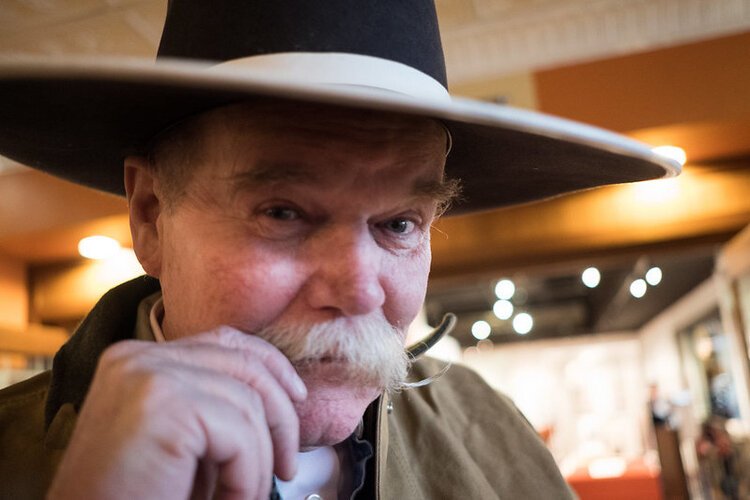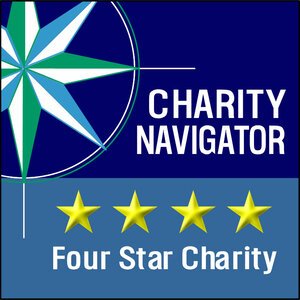May 2022
Being rather devoted to cowboy poetry, we’re delighted when people take an interest in the classics. Many traditions crystallize around core classics–pieces that become standards to those “in the know.” Cowboy poetry is no exception. Why do certain poems (and not others) evoke such loyalty through the years? What do they inspire? For whom? If you’re looking to learn your classics, where might you start? Who better to know a thing or two about all this than the Ask a Cowboy Poet panel? So, we posed them this month’s question:
What three classic poems do you think every cowboy poet should know, and why?
- Sincerely, Seeking Out Standards
It’s a two-parter. Next month, the poets consider the idea of “new classics.”
Have a question for the cowboy poets? They would be delighted to hear from you! Submit a question on our Facebook, Instagram, or by email to media@westernfolklife.org.
Waddie Mitchell:
What is a classic cowboy poem? The way it seems to be is if it is known, recited, and has an awareness fifty years after being written, it has earned the right to be classified "classic."
The three classic cowboy poems I believe are worthy of every cowboy poet knowing, and why, are:
“Tying Knots in the Devil’s Tail” by Gail I. Gardner
This poem made itself to every corner of the cowboy world when the web wasn't here. It traveled mostly word of mouth. Its storyline is mystic with lots of chuckles thrown in. Plus, it's cowboy situation, cowboy language, and cowboy way of thinking. Barely old enough, but it is a true classic. Many artists have put tunes to it and performed and recorded it as a song.
“The Strawberry Roan” by Curley Fletcher
This poem was also put to music, but they left the poem intact (no bridge, no chorus). One of the most important poems of the genre.
“When They’ve Finished Shipping Cattle in the Fall” by Bruce Kiskaddon
Meditative, reminiscent, image painting, all in cowboy vocabulary. Real cowboy but relatable to all.
These by no means should be construed as the best, but they are three of the top, maybe, fifteen.
DW Groethe:
There's no real answer to this as, for me anyway, it'll vary with the day because there are too many great "classic" poems out there. What I recommend you do is learn a few poems from each of the "classic" poets...Henry Herbert Knibbs, Badger Clark, S. Omar Barker, Curley Fletcher, and the list goes on... I almost always recite "The Strawberry Roan," but since every audience is different I might decide to do "Boomer Johnson" (Knibbs) instead of "Tyin' Knots in the Devil’s Tail" (Gardner) or "Ridin'" (B. Clark) instead of "The Chuckwagon" ( S. O. Barker). And then there's poets like Robert Service who are not "cowboy" poets but fit in fine with what we do, like "The Shooting of Dan McGrew"...see what I mean? We're lucky to have such a grand list to choose from. A plethora (been waiting forever to use that word) if you will. Have fun and go fencin'...it's the perfect time to memorize poems.
Thanks for askin',
dw
Virginia Bennett:
The first one that came to my mind as I set about to write this was Henry Herbert Knibbs, “Where the Ponies Come to Drink.” Mr. Knibbs gave us a great, poetic style to play with and also teaches us how to paint a picture with words as well as any other poet of any genre.
The next one I thought of was “The Men That Don't Fit In” by Robert W. Service. A student of cowboy poetry can learn from this poem that he or she can write about the sort of person a cowboy might be without even mentioning anything about a ranch, a horse, or a cow. That was a lesson I needed to learn in my early years of writing poetry because I mistakenly thought cowboy poetry HAD to include "ranchy stuff." I was blessed early on to be mentored by the gifted poet, Vess Quinlan. He taught me that I could write about the things that are common to mankind or even unique to a certain subject without always having to include sagebrush, broncs, or chuckwagon cocineros.
“Between the Lines” by Bruce Kiskaddon has stuck in my mind ever since I first read it back in the 1980s. I enjoy poetry that goes to the raw and rarely-discussed part of history (or any story about any topic). “Between the Lines” takes us to a dark place in ways that put us right into a tragic situation. Surely a lesson on the value of such literature is worthy to be heard.
Honorable Mentions: “They Keep A-Stealing on You in the Night” by Rhoda Sivell, “Ridin’” by Charles Badger Clark, “Hail and Farewell” by Delia Gist Gardner
Bill Lowman:
“Tying Knots in the Devil’s Tail” by Gail I. Gardner
“When They’ve Finished Shipping Cattle in the Fall” by Bruce Kiskaddon
“Little Joe the Wrangler” by N. Howard “Jack” Thorpe
These were actually poems that were sung a cappella as most old classic songs were. They record our early past history that otherwise would be lost. They preserve our heritage as we're doing contemporary work of our cowboy era. The early-day cowboy was basically nomadic and therefore most of their history was oral. The few poems and songs are stellar to its cultural survival.
My dad always sang "Little Joe the Wrangler" and "When the Work’s All Done This Fall"* to my brothers and I as we grew up on horseback and doing ranch work. It wasn't until I got a little older that I realized he couldn't carry a tune in a tin bucket, so I recited poems instead of songs to spare my offspring while we rode. A cowboy poem and a cowboy song are basically double first cousins or perhaps even siblings.
Yvonne Hollenbeck:
First of all, it is good that every cowboy poet knows and studies many of the old classics, if nothing else but to inspire and enhance their own writing of poetry, but not necessarily to memorize them and recite them. When people attend a cowboy poetry gathering, for the most part, they enjoy hearing the work of the poet doing the presenting. There are a few reciters that do an outstanding job doing the "classics," and they are contracted and scheduled for that purpose. With that said, here are three that I consider classics that are my favorites:
"The House With Nobody In It" by Joyce Kilmer
Although it speaks of an old, abandoned house, this poem speaks volumes about the sad abandonment and deterioration of farm and ranch homes, barns and buildings across the West, and how the West is changing.
"Ridin'" by Charles Badger Clark
This poem echoes the sentiments of every cowboy.
"Rekindling Campfires" by Ben Arnold (also known as "The Campfire Has Gone Out") Although not as widely known as many old classics, this poem was published in the book with the same title in 1926 by the University of North Dakota Press, and in numerous publications since, but was originally written in 1879. The words were put to music by Ben's friend, John Suttles, a Kentuckian, who was freighting at Ft. Niobrara with Ben and who was an excellent musician. The song was sang around campfires, passed along, and was often sung by Don Edwards, who also recorded the same under the title, "The Campfire Has Gone Out." Arnold, a Civil War vet, lived at a time when he could see the whole procession of the Old West, and said that the years spent as a cowboy were the happiest of his life. Around the round-up wagon and the campfire were formed friendships in which there was no shadow of turning. How do I know all this? Because Ben Arnold was my great-grandfather. Imagine my feelings, while standing offstage getting ready to perform at a program in Elko as Don Edwards closed his set singing that song.
Dick Gibford:
Cowboys like me are sure enuff dinosaurs. I don’t even know how to run a computer. My cell phone is the limit to my technical ability. I have spent most of my adult life in cow camps without electricity and it’s totally okay with me living the old way. Now that I have said my piece about that, just know that when I answer an Ask a Cowboy Poet question, it’s based on strictly common-sense thinking and what I have read in books. There is another source of knowledge available to some, that all of us have a chance at, but unfortunately we just get a glimpse of now and then. So, now that I am done with my philosophical meanderings, I will get to the question. Since I am a proud American, my first choice of a classic that would be nice if everyone would read is: “Paul Revere’s Ride” by Longfellow. The other two would be: “The Man From Snowy River” by Banjo Paterson, and “The Tome of Time” by Curley Fletcher. The why for these other two is this: “The Man From Snowy River” was written by a poetic genius from down under, and the other one was written by a poetic genius that never went past fourth grade, reared and raised a cowboy on the high deserts along the California-Nevada border.
*Note from the Western Folklife Center: We edited titles and writing credits in the poets’ responses so that the same poem is referred to by the same title throughout. But, in oral tradition, the poems go by variations and shorthands of the titles, so we left a hint of that everyday usage here and there.










